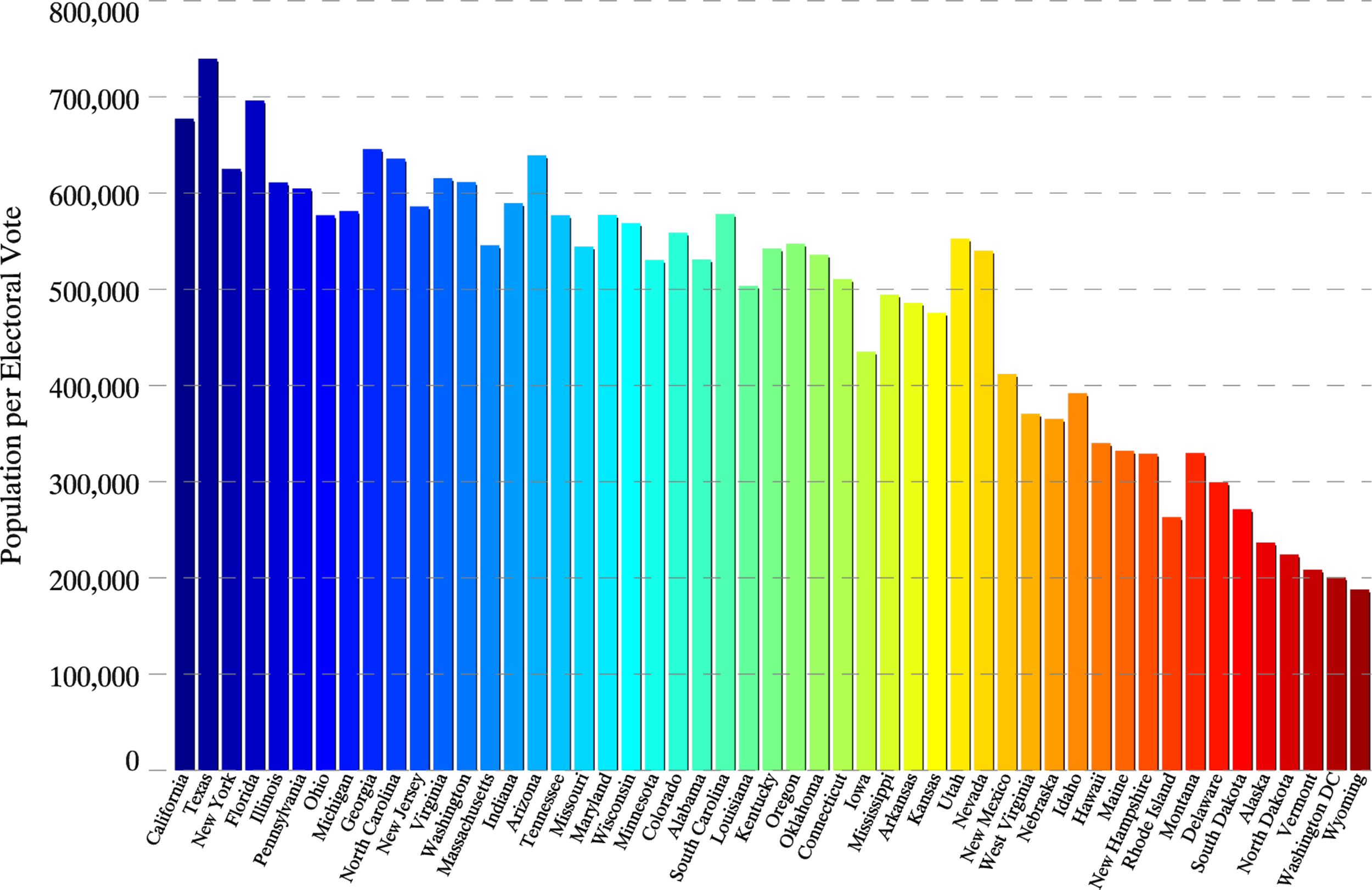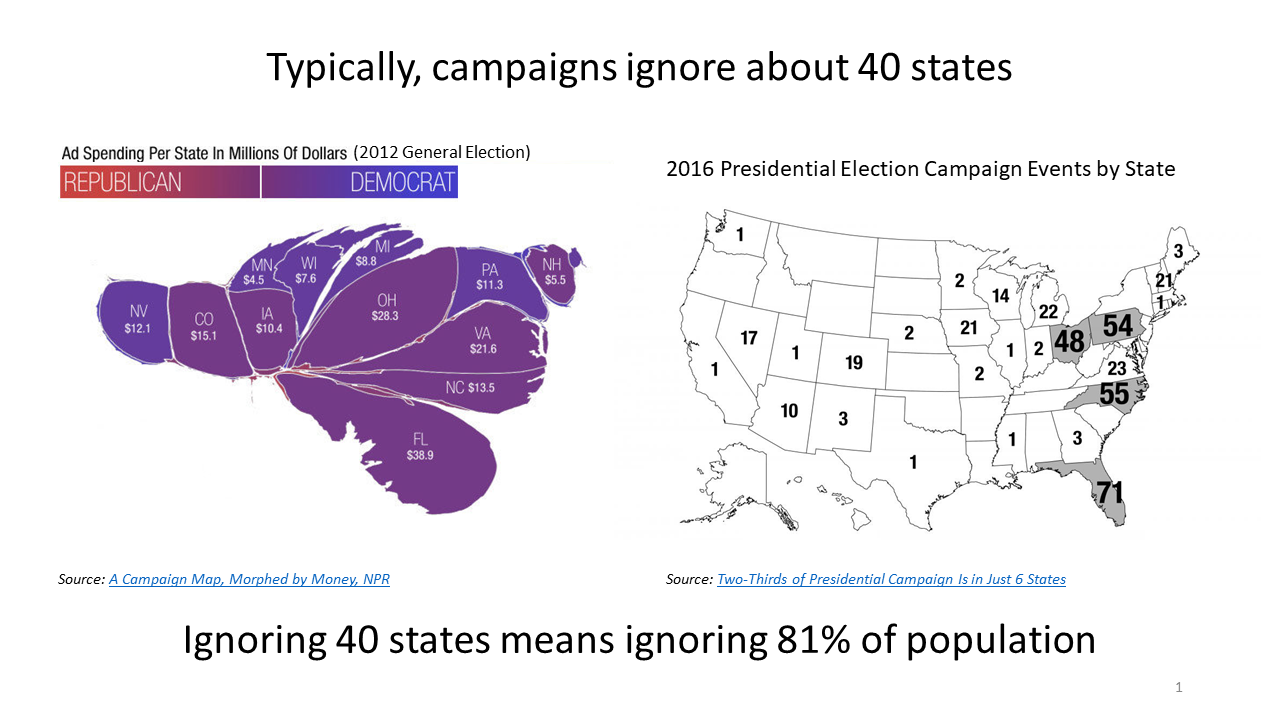“Axios senior visual journalist Chris Canipe found that of the 10 states with the most affected federal employees per 10,000, six voted for Trump — Alaska, Montana, Wyoming, South Dakota, Idaho and West Virginia. The top 10 states that voted for Hillary Clinton were D.C., Maryland, New Mexico and Virginia.”
All of these except Virginia and Maryland are small states, and those two are only middle sized. The small state electoral college advantage, which is that they have more electors per capita, apparently does nothing to cause the White House or any potential Democratic Party nominee to end the shutdown.
The reason is that the electoral system makes first-term presidents and rivals concerned about the impact of their policies on swing state voters, not on small states.
This record long shutdown is most harmful to states that both parties take for granted in the general election. The Democratic nominee will not compete in the six states Trump won; Trump will not compete in the four the Democratic nominee is sure to win.
The shutdown hits hardest in the land of the ignored, where the voters are taken for granted, and most of their votes are systematically discarded without being part of a national count based on one person, one vote equality.
The electoral college system enables the president and his potential opponents in the general election to reject compromise, and disproportionately harms the voters in these ten states.
If every vote mattered in a single national count, then Trump and his potential rivals would be far more willing to compromise and far less willing to harm federal employees, their families, and the many others who rely on federal services.
The legislatures in the victimized states can change this system by allocating their electors to the national popular vote winner, acting alone or in concert with other states. If they did this on Monday, the shutdown would be ended by compromise by Tuesday. Just saying.






